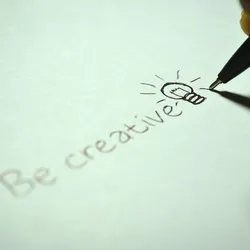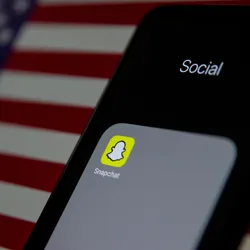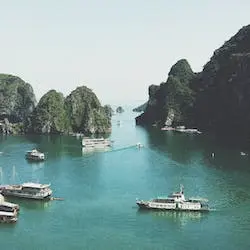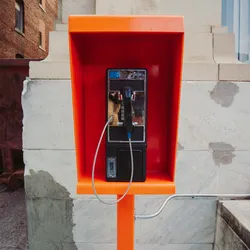
Level 1:
Words are special. They live in stories. Stories take us to new places. Imagine lands with castles and magic! Authors make these places. They use their minds and pens. Writers like J.K. Rowling do this. They create wizards and spells. We read and explore these worlds. Stories feel real because we feel them. We write to share thoughts. People read later. Stories help us learn. Our words stay forever. Writing is like drawing maps. It’s fun to make stories. Stories can change things. We can write about future. Words are like magic spells. We create our own worlds. It’s exciting and fun!
Level 2:
Words hold great power. They shape stories. Stories transport us to new realms. Picture lands with castles and magic! Authors weave these worlds. They use their minds and pens. Writers like J.K. Rowling do this. They create wizards and spells. We read and explore these worlds. Stories feel real because we feel them. Writing shares thoughts. People read them later. Stories teach us too. Our words last forever. Writing is like mapping. It’s enjoyable to craft tales. Stories bring about change. We can write about the future. Words act as magic spells. We mold our own universes. It’s both thrilling and enjoyable!
Full Story:
Brimming with digital screens and endless notifications, there’s a quiet power that resides in the written word. The act of putting pen to paper or fingers to keyboard isn’t just about forming sentences; it’s about creating entire universes, unbounded by the constraints of reality. Welcome to the realm of limitless imagination, where words are the brushstrokes that paint vibrant landscapes and shape the contours of new realities.
The Gateway to Creation
Words are more than mere tools of communication. They are the keys to a gateway that leads to realms yet undiscovered. When we write, we don’t just describe; we invent, we innovate, we transcend. Consider the authors who have etched their names into history - J.R.R. Tolkien, whose words birthed Middle-earth, and J.K. Rowling, who conjured the enchanting world of wizards and spells. These writers didn’t just tell stories; they crafted entire dimensions from the ink of their pens.
Imagination: The Architect’s Workshop
Imagination isn’t confined to children’s playrooms. It’s the architect’s workshop where the blueprints of worlds are sketched, where reality meets possibility. With the tap of a key, we can summon characters with lives of their own, civilizations that rise and fall, and landscapes that stretch beyond the horizon. Imagination is the clay from which we mold, the raw material we transform into grand tapestries of narrative.
Beyond the Horizon of Reality
Why do we yearn for worlds beyond our own? Is it the thrill of exploration or the desire for escape? In the stories we weave, we often find echoes of our aspirations, our fears, and our curiosities. The distant galaxies of science fiction, the mystical realms of fantasy, or the historical epochs of the past - they all offer windows into the human experience. But what compels us to embark on these journeys of the mind?
The Power of Connection
As we lose ourselves in the worlds we create, we find a peculiar paradox: the more fantastical the setting, the more relatable the emotions. Whether it’s a dragon-ridden kingdom or a dystopian future, the struggles and triumphs of characters resonate because they reflect our own. In the act of shaping stories, we’re reminded of our shared humanity, bound by emotions that transcend time and space.
Writing: A Conversation Across Time
Words are more than just a medium for storytelling; they’re a conversation across time. The thoughts we pen today might be perused by someone not yet born, bridging the gap between generations. As we put our ideas into words, we create a time capsule of our thoughts, hopes, and dreams. It’s an act of preservation, a way to defy the fleeting nature of existence.
Confronting the Blank Canvas
But the act of creation isn’t without its challenges. Every writer has stared down the intimidating blank canvas, where ideas refuse to materialize. How do we tap into the wellspring of imagination when it runs dry? How do we navigate the labyrinth of writer’s block? Perhaps the answer lies in seeking inspiration from the world around us - the stories in nature, the whispers in crowded streets, the mysteries of the cosmos.
Words as Catalysts for Change
Beyond entertainment, words have the power to ignite change. From historical manifestos to contemporary activism, writing has sparked revolutions, challenged norms, and forged new paths. When we craft stories that tackle societal issues or explore uncharted territories, we’re not just creating art; we’re catalyzing conversations that shape the world.
Embracing the Journey
In the realm of boundless imagination, there are no maps or compasses. Each writer embarks on a unique journey, discovering landscapes that defy conventions. The creative process is a voyage of self-discovery, a pilgrimage that unearths hidden facets of the mind. Along the way, we grapple with self-doubt, we dance with inspiration, and we wrestle with words until they surrender their magic.
The Endless Frontier
So, why do we write? Is it the promise of fame or the allure of fortune? Perhaps it’s something deeper - the yearning to explore the endless frontier of the mind, to unravel the enigma of existence, and to leave a mark that echoes through time. Writing isn’t just about arranging letters; it’s about breaching the boundaries of reality and giving life to the intangible.
In a world saturated with distractions, the act of crafting worlds with words remains a resounding testament to our innate human ability - the ability to imagine, to create, and to transcend. As long as there are stories waiting to be told, the journey of weaving words into tapestries of imagination will continue, beckoning us to explore the uncharted territories of our own minds.
Questions:
Question: What is the role of imagination in crafting worlds with words?
Answer: Imagination plays a crucial role in creating new worlds through writing. It’s like having a special tool that lets authors invent entire places and stories. When writers imagine, they can make castles, magic, and even faraway planets. For instance, famous authors like J.K. Rowling use their imagination to bring wizards and spells to life. Imagination helps writers put together all the exciting parts of a story, like puzzle pieces coming together. So, without imagination, these amazing worlds wouldn’t exist in the stories we love.
Question: How do stories connect people across time and space?
Answer: Stories are like bridges that connect people, no matter when or where they live. When we write stories, we’re leaving behind a piece of ourselves for others to read later. Just like when we read stories from the past, we can understand what people were like back then. It’s like getting to know someone who lived long ago. And when we read stories from different places, we get to learn about their cultures and traditions. So, stories are like messages that travel through time and space, making us feel connected to people we’ve never met.
Question: Do you think writing can change the way people think?
Answer: Yes, writing has the power to change how people think. Stories can be like a mirror that shows us things about the world we didn’t notice before. For example, when authors write about important issues like fairness or being kind, it can make readers think about those things more. Stories can also help us see things from different points of view. So, when we read about characters who face challenges, we might start to understand what others go through. Writing is like a secret tool that can gently shape the way we see the world around us.
Question: What challenges might writers face when trying to create new worlds?
Answer: Creating new worlds with words can be exciting, but it also has its challenges. Sometimes, writers get stuck when they don’t know how to start or what should happen next. This is called writer’s block. It’s like having a puzzle piece that just won’t fit. Also, making a world feel real and interesting can be tough. Writers need to describe everything so that readers can see it in their minds. This needs a lot of practice and thinking. But even with challenges, the joy of bringing a new world to life through words is worth the effort.
Question: Why is writing considered a way to leave a mark on the world?
Answer: Writing is like making a mark on a timeline. When we write stories, thoughts, or ideas, we’re leaving a piece of ourselves for others to discover. These words stay even when we’re gone. Just like reading a letter from a long time ago, people can read what we wrote and understand what we cared about. Our stories become a part of history, a way to remember who we were and what we felt. So, writing is like planting a tiny seed that grows into a big tree, a way for us to make sure our voice is heard even in the future.
Fill in the Blanks:
forged, undiscovered, block, intimidating, enchanting, resides, aspirations, brimming, uncharted, innate, conjured, bridging, pilgrimage, echoes, facets, yearn, capsule, etched, resonate, wellspring, constraints, tapestries, dystopian, beckoning, labyrinth
Title: Unleashing Imagination: Crafting Limitless Worlds with Words
In a world ________ with digital screens and endless notifications, there’s a quiet power that ________ in the written word.
The act of putting pen to paper or fingers to keyboard isn’t just about forming sentences; it’s about creating entire universes, unbounded by the ________ of reality.
They are the keys to a gateway that leads to realms yet ________.
Consider the authors who have ________ their names into history - J.R.R.
Rowling, who ________ the ________ world of wizards and spells.
Imagination is the clay from which we mold, the raw material we transform into grand ________ of narrative.
Beyond the Horizon of Reality
Why do we ________ for worlds beyond our own?
In the stories we weave, we often find ________ of our ________, our fears, and our curiosities.
Whether it’s a dragon-ridden kingdom or a ________ future, the struggles and triumphs of characters ________ because they reflect our own.
The thoughts we pen today might be perused by someone not yet born, ________ the gap between generations.
As we put our ideas into words, we create a time ________ of our thoughts, hopes, and dreams.
Every writer has stared down the ________ blank canvas, where ideas refuse to materialize.
How do we tap into the ________ of imagination when it runs dry?
How do we navigate the ________ of writer’s ________?
From historical manifestos to contemporary activism, writing has sparked revolutions, challenged norms, and ________ new paths.
When we craft stories that tackle societal issues or explore ________ territories, we’re not just creating art; we’re catalyzing conversations that shape the world.
The creative process is a voyage of self-discovery, a ________ that unearths hidden ________ of the mind.
In a world saturated with distractions, the act of crafting worlds with words remains a resounding testament to our ________ human ability - the ability to imagine, to create, and to transcend.
As long as there are stories waiting to be told, the journey of weaving words into tapestries of imagination will continue, ________ us to explore the uncharted territories of our own minds.
Vocabulary:
Resides: (verb) to exist or be present in a particular place.
Brimming: (adjective) full to the point of overflowing.
Constraints: (noun) limitations or restrictions that control or confine something.
Undiscovered: (adjective) not yet found or explored.
Etched: (verb) engraved or carved into a surface.
Conjured: (verb) brought about or summoned as if by magic.
Enchanting: (adjective) delightfully charming or captivating.
Conjured: (verb) summoned or created, often with a sense of magic or imagination.
Tapestries: (noun) intricate and varied combinations of elements, often in the form of stories or experiences.
Yearn: (verb) to have a strong and often melancholy desire.
Aspirations: (noun) strong desires or ambitions to achieve something.
Dystopian: (adjective) describing a future society characterized by negative, oppressive, and often dehumanizing traits.
Echoes: (noun) repeated or reflected sounds or ideas.
Resonate: (verb) to evoke a shared emotional response; to have a deep impact or significance.
Bridging: (verb) connecting or forming a link between two things.
Capsule: (noun) a small container holding something valuable or important.
Labyrinth: (noun) a complex and intricate network of passages; a maze.
Block: (noun) a state of being unable to proceed with a creative task, often due to lack of inspiration.
Intimidating: (adjective) causing feelings of fear, awe, or apprehension.
Wellspring: (noun) a source of abundant supply; often used metaphorically for creative inspiration.
Labyrinth: (noun) a complicated or confusing situation or thing.
Catalyst: (noun) a substance that causes or accelerates a chemical reaction; metaphorically, something that initiates change.
Forged: (verb) created or formed through careful effort and skill.
Uncharted: (adjective) not yet mapped or explored.
Facets: (noun) individual aspects or sides of something larger; components.
Pilgrimage: (noun) a journey, especially a long one, made to a sacred place as an act of devotion.
Innate: (adjective) existing from birth; inherent and natural.
Beckoning: (verb) calling or inviting someone to approach, often through gestures or signals.
Saturated: (adjective) completely filled or soaked to the point where no more can be absorbed.




